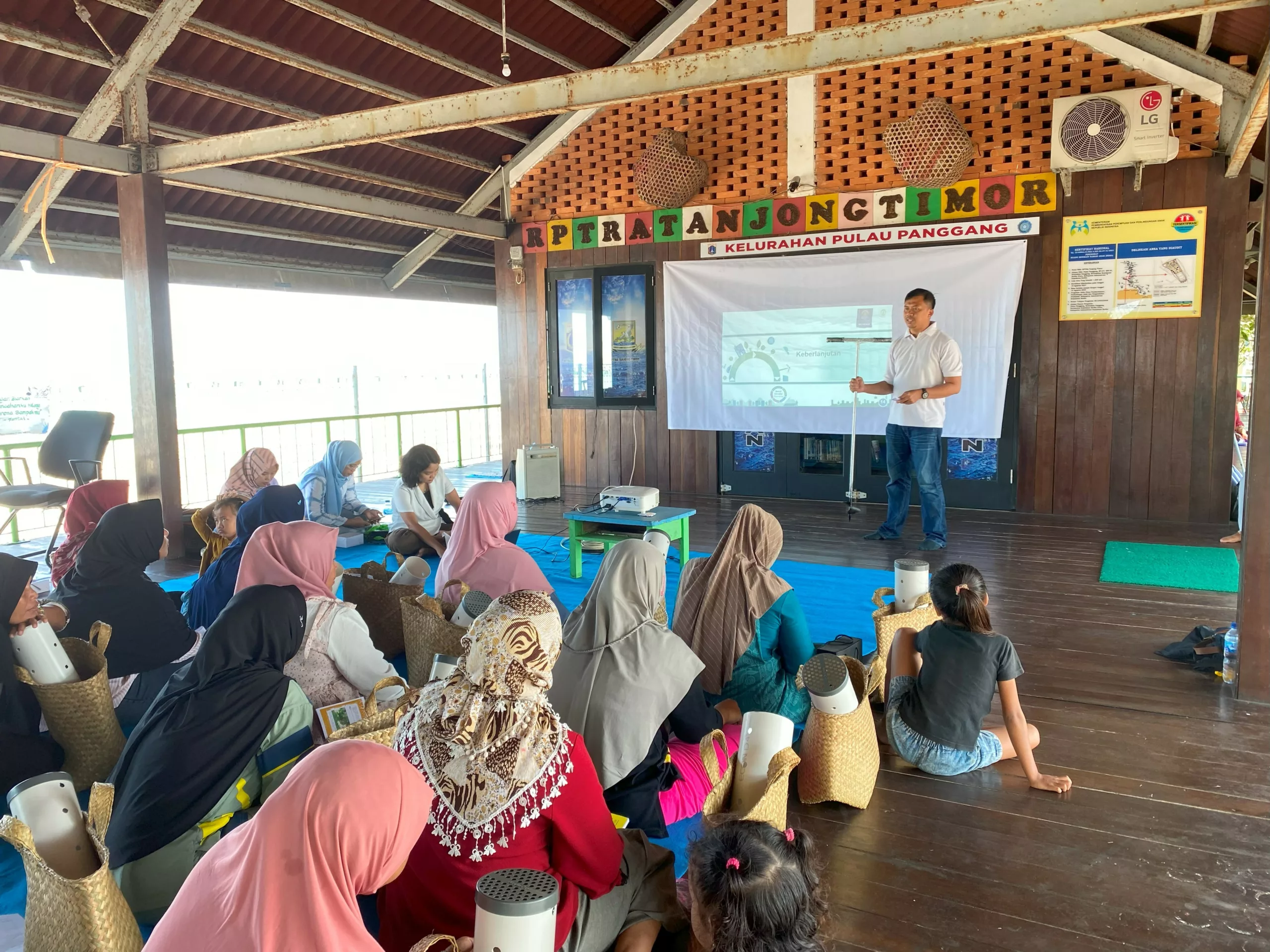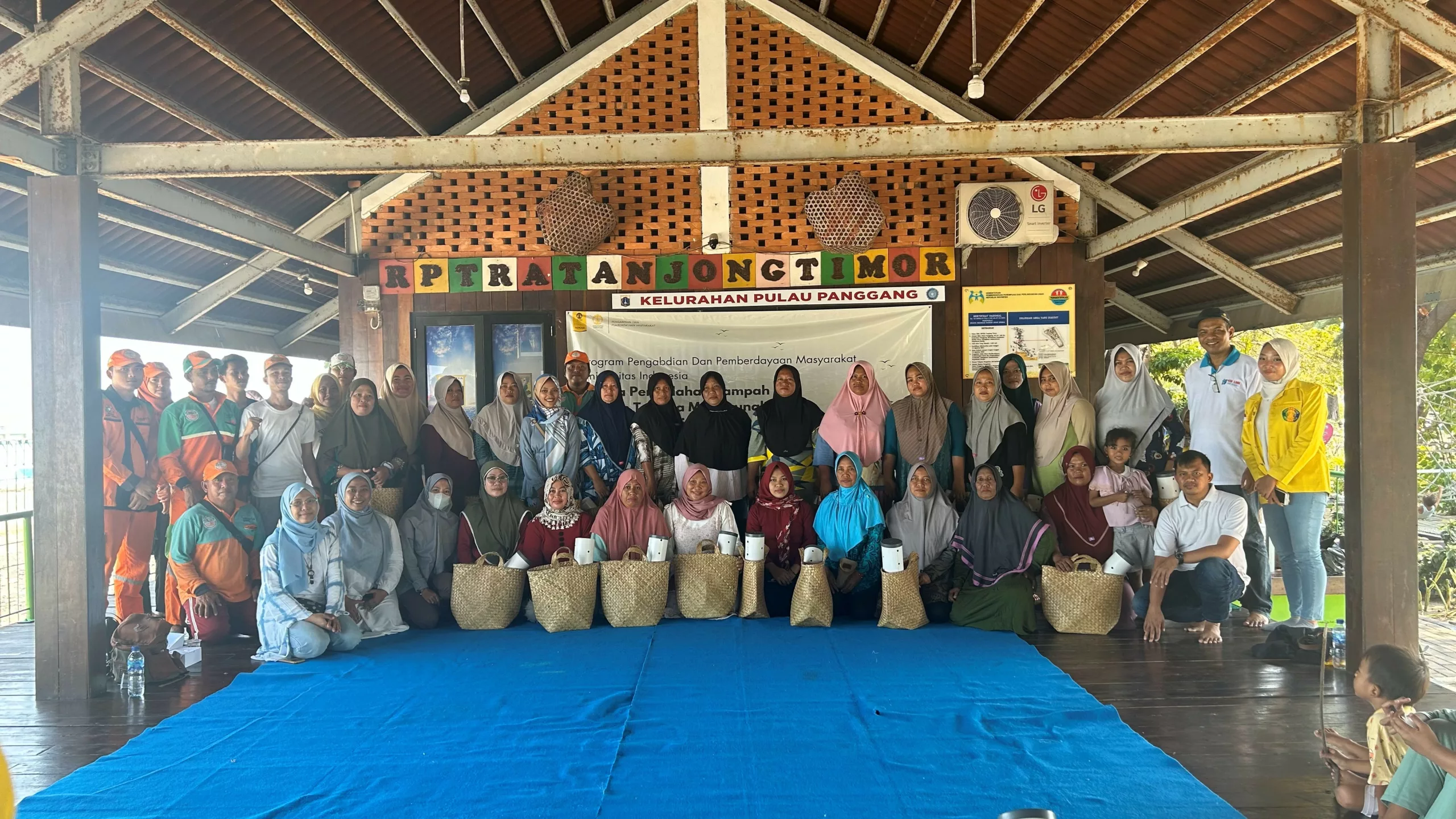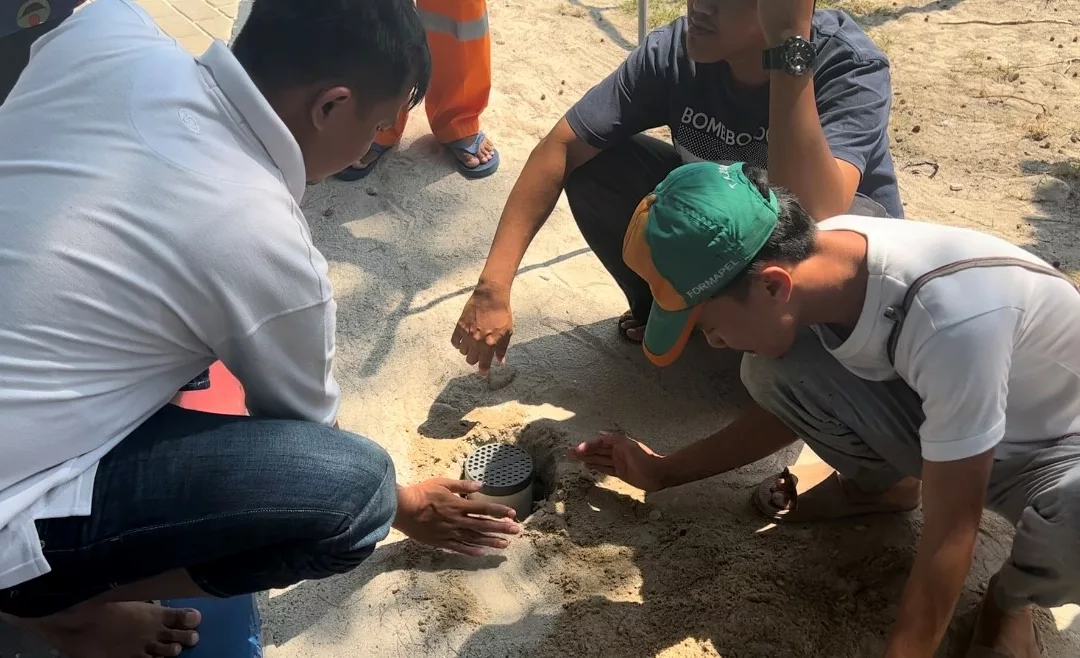Depok-The community service team of the Universitas Indonesia (UI) Vocational Education Program, chaired by Ari Nurfikri, S.K.M., M.M.R., lecturer in the Hospital Administration study program, held training activities at the Panggang Island RPTRA Hall, Seribu Islands on August 18-19, 2023. As many as 35 residents of Panggang Island took part in a community service activity entitled “Efforts to Process Household Waste Using Biopore Holes”. Together with other lecturers, Supriadi, S.K.M., M.A.R.S.; Nia Murniati, S.K.M., M.K.M.; Badra Al Aufa, SKM., MKM.; Debrina Vita Ferezagia, S.Si., M.Si.; and Karin Amelia Safitri, S.Pd., M.Si.; as well as UI Vocational students, the community service team is trying to educate the people of Panggang Island to process and reuse household waste into compost using biopore holes.
Head of Panggang Island People’s Welfare, Sofiyah, said that household waste in Thousand Islands Regency is still a problem. Data from the Thousand Islands Environmental Service Office stated that waste in the area was dominated by twig wood and food waste, which reached 31.59% and 25.50%, respectively. It is a challenge for the government and the local community because the Thousand Islands is not only a residential location, but also one of ten national priority tourism destinations. He said, “We are grateful to the UI Vocational community service team for the program which is useful and answers the problem of organic waste on Panggang Island. I hope that this program can continue to be sustainable and well managed by the community.”
 (Photo: Ari’s presentation regarding waste management through biopore technology)
(Photo: Ari’s presentation regarding waste management through biopore technology)
Ari said that the use of biopore holes in reducing the volume of organic waste can be used because biopores are holes in the soil formed due to various activities of soil biota organisms such as earthworms, plant roots, termites, and other soil fauna. “The holes formed will be filled with air and will become a place for water to pass in the soil. These holes are an alternative method for absorbing rainwater and processing organic waste. Then, the waste that is put into the holes will lure organisms in the soil to make small tunnels, so the water absorbs quickly,” said Ari.
Apart from that, the UI Vocational community service team also gave an example of using biopore drilling equipment to make a hole with a diameter of 10 cm, inserting a modified paralon pipe, until the organic waste was put into the biopore hole. According to Ari, community involvement is needed for this program to be sustainable. Especially in the management, maintenance and development of biopore infiltration holes, it will provide a sense of ownership and responsibility for the sustainability of the program.
 (Photo: Training on application of biopore technology on Panggang Island)
(Photo: Training on application of biopore technology on Panggang Island)
Ari added that adapting simple technology in managing waste for the community, especially housewives, in order to reduce the amount of household waste, such as kitchen waste, will have many benefits and have economic value. He said, “This program focuses on making compost and biopore. This is because these two programs are very simple and easily adapted by housewives. So, it is hoped that they will be able to do it in between household chores. The application of compost and biopore results is focused on plants to be more effective and have high use value.”
Responding to the community service, the Director of the UI Vocational Education Program, Padang Wicaksono, S.E., Ph.D expressed his support. “This waste problem is indeed a national problem in Indonesia that needs to be solved together. Processing waste, especially organic, through biopore technology is expected to be a solution that has a real impact on society. This activity is also our effort to make water and soil conservation a success according to the UI GreenMetric program,” said Padang.


